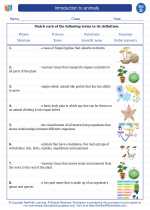Producer
In the context of ecology and ecosystems, a producer refers to an organism that is capable of producing its own food through the process of photosynthesis. This means that producers are able to convert energy from sunlight into organic compounds such as glucose, using carbon dioxide and water. In most ecosystems, plants are the primary producers, although certain types of bacteria and algae can also perform photosynthesis.
Producers play a crucial role in the food chain, as they form the base of the ecosystem's energy pyramid. They provide energy and nutrients for all other organisms in the ecosystem, including consumers and decomposers. Without producers, the entire food web would collapse, as there would be no source of energy for other organisms to survive.
Study Guide: Producers in Ecosystems
- Definition: What is a producer in the context of ecology and ecosystems?
- Photosynthesis: Explain the process by which producers convert sunlight into energy.
- Examples: Provide examples of primary producers in various ecosystems (e.g., grasslands, forests, aquatic environments).
- Role in Food Chain: Discuss the importance of producers as the foundation of the food chain and energy pyramid.
- Adaptations: Describe the adaptations that allow plants, algae, and bacteria to be successful producers in different environments.
Understanding the role of producers in ecosystems is fundamental to comprehending the interconnectedness of living organisms and the flow of energy within natural systems. By mastering this concept, students can gain a deeper appreciation for the importance of plants and other primary producers in sustaining life on Earth.
.◂Science Worksheets and Study Guides Fourth Grade. Introduction to animals
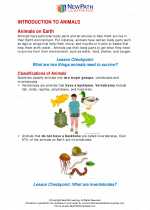
 Worksheet/Answer key
Worksheet/Answer key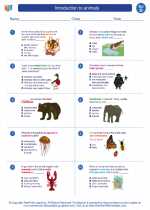
 Worksheet/Answer key
Worksheet/Answer key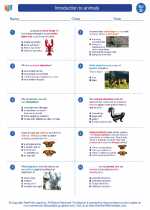
 Worksheet/Answer key
Worksheet/Answer key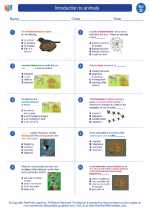
 Vocabulary/Answer key
Vocabulary/Answer key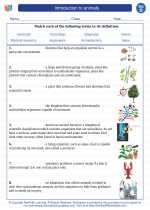
 Vocabulary/Answer key
Vocabulary/Answer key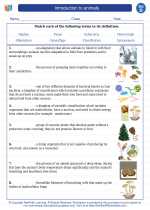
 Vocabulary/Answer key
Vocabulary/Answer key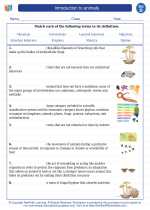
 Vocabulary/Answer key
Vocabulary/Answer key